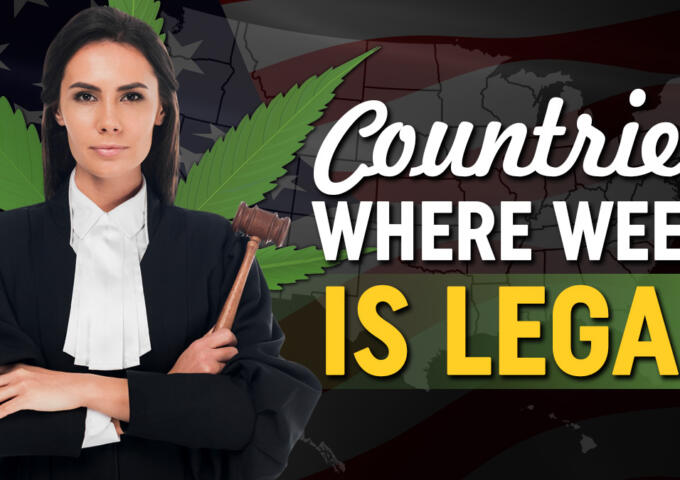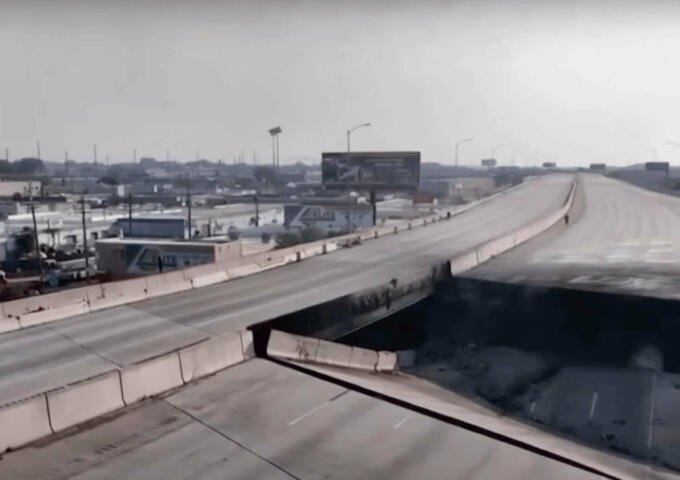Rues Road—which winds through an idyllic and remote area of Upper Freehold Township, New Jersey, past lush farm fields and the occasional McMansion set back on a sprawling parcel of land—doesn’t look much like a battlefield. But it’s become ground zero in the fight over the state’s Compassionate Use Medical Marijuana Act, in limbo for nearly two years since former Gov. Jon Corzine signed the bill on his last day of office in January 2010.
A pot farm wants to move into a property on Rues Road, residents are up-in-arms, and medical marijuana advocates say a tiny but adamant group of anti-weed activists is behind efforts to stall the act indefinitely. And while many eyes here have been focused on New Jersey’s nascent medical marijuana program as a potential model for Pennsylvania to adopt, the only lesson that seems to be coming out of the Garden State is how to pass a law without ever actually implementing it.
In July, Gov. Chris Christie, who’s made no bones about his disdain for the law, reluctantly announced that New Jersey was forging ahead with the delayed and highly regulated program because the federal government—which still classifies marijuana as an illegal substance with no medicinal value—assured him that state and local employees at facilities growing or dispensing the drug would not be prosecuted.
The announcement gave the green light to six nonprofit alternative treatment centers (ATCs) mandated by the act as the state’s sole providers of medical marijuana—two ATCs each in South, Central and North Jersey—to find suitable locations for their operations, with the provision that they first had to get approval from local municipalities before setting up shop.
So far, that’s proved difficult. In October, Compassionate Sciences ATC’s proposed location in Maple Shade was rejected by the township’s zoning board. The Compassionate Care Foundation ATC received the preliminary go-ahead for a site in Westampton, Burlington County, but was informed a few weeks ago that it now has to go before the township’s Land Development Board early next year for approval.
But things have reached a fever pitch in Upper Freehold, where Breakwater ATC wants to set up its marijuana grow operation on a half-acre of land on one of two sites along Rues Road (they’re also considering two other sites within a mile of Rues Road). Hundreds of outraged people packed a local school auditorium on Nov. 22 to express their concerns over a possible increase in danger and crime—armed thugs coming to their quiet town to steal the weed, marijuana customers smoking weed in the Breakwater parking lot then driving around stoned, etc.—as well as the stigma of being home to a pot farm. In the wake of that meeting, the Upper Freehold Township Committee is set to pass an ordinance on Dec. 15 that would ban any enterprise that violates federal law.
Despite Christie’s public assurances that the feds will keep their noses out of pot farms throughout the state, that’s still not good enough for Upper Freehold Mayor LoriSue Mount, an ardent Christie backer who sits on the five-person township committee and strongly supports the ordinance on principle. “It’s not a decision about whether medical marijuana is right or wrong, or right in Upper Freehold Township or another town,” she says, insisting that she’s not necessarily personally opposed to the idea of medical marijuana for patients suffering from cancer and other debilitating diseases. “It’s strictly that it’s prohibited by federal law, and if we stop paying attention to the laws, where do we end up? It would be anarchy.”
But Chris Goldstein, spokesman for the Coalition of Medical Marijuana New Jersey, says that’s bogus. He believes Christie purposely delayed implementation of a law he personally despised under the guise of concerns about federal prosecution—which Goldstein says would be “remarkably unlikely”—as long as he could, and now the tactic is being employed on the local level.
“The very clear friction that’s happening between state and federal law on this issue is making it easier for a minority opposition to hold back this law,” Goldstein laments.
Noting that a Rutgers-Eagleton poll issued on Nov. 30 found that 86 percent of New Jerseyans support medical marijuana, Goldstein believes that just a handful of people are coordinating efforts across the state to stymie ATCs from getting the necessary municipal approvals.
“What you’ve got is sour-grapes opposition who lost the battle for the bill reorganizing opposition on the local level, in each of the places there’s a land use hearing,” says Goldstein, pointing to one foe in particular: 64-year-old Belvidere lawyer David Evans, head of the Drug Free Schools Coalition and a longtime anti-pot crusader.
Goldstein accuses Evans of using “reefer madness” scare tactics—through phone calls, e-mails and other means—to rile up locals in Upper Freehold, Maple Shade and elsewhere, as well as get in the ears of various committee members, zoning officials and others in charge of the ATC approval process. He says Evans or his close allies have “been spotted at many of these hearings,” an assertion backed up by Chuck Kwiatkowski, 40, a fellow medicinal pot advocate who suffers from multiple sclerosis and says he smokes weed in lieu of 27 prescriptions (at a cost of several hundreds of dollars a month that he doesn’t have) recommended by his doctor.
Kwiatkowski, who lives in North Jersey, says he traveled to the Nov. 22 meeting in Upper Freehold to support Breakwater because he figured Evans would be there. He says Evans wasn’t there, but claims that some of his people (whom Kwiatkowski recognized from other hearings) were—heckling him and chanting slogans like “Up with hope, down with dope.”
“They treated me like I was the devil, and I have MS,” says Kwiatkowski.
Reached by phone at his Belvidere office, Evans says the accusations being leveled at him are ridiculous. He denies attending any meetings anywhere in the state relating to ATC approvals. He says he’s spoken with one member of the Upper Freehold Township Committee (whose name he says he can’t recall) “briefly on the phone” and “I may have talked to a council member in Montclair,” where Greenleaf Compassion Center is trying to open a pot dispensary.
“I have not had an ongoing communication with any of these people,” says Evans. “The only thing I’ve done was I’ve sent them the arguments why [medical marijuana] is illegal under federal law, and I’ve tried to show them news stories about what’s been happening in other states and how local people are objecting to it and so forth.”
Evans also denies that he’s responsible for any kind of effort to stir up local residents in areas where ATCs are trying to lay down roots.
“What these people would like to do is blame this all on me instead of saying that there are people in the state that don’t like this,” he says. “It’s a lot easier to make me into a bogeyman than accept the reality of what’s really going on here.”
Upper Freehold resident Kimberly Lima, a 40-year-old mother of two small boys, says she’s spearheaded local opposition to Breakwater—personally obtaining more than 600 signatures for a petition against the ATC—mostly over concerns about her family’s security. She insists she’s never heard of Evans, and resents the suggestion that he’s behind the furor.




